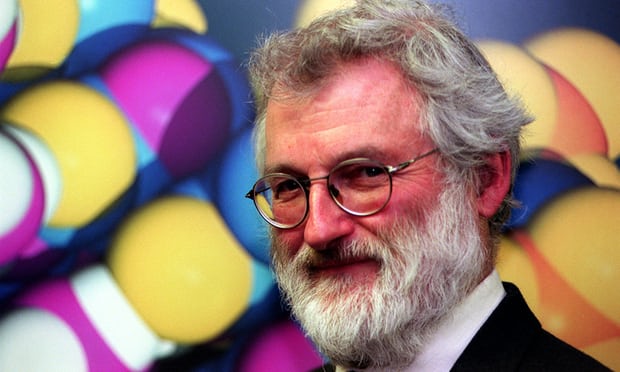The scientist led the UK side of the landmark Human Genome Project and founded and directed the Wellcome Sanger Institute near Cambridge, one of the country’s leading biomedical institutions.
Sulston’s work on decoding the genome of the nematode worm Caenorhabditis elegans, which revealed how genes control cell division, won him the 2002 Nobel prize in physiology or medicine. The findings underpin the modern understanding of developmental growth and of how cancers emerge.
In a series of experiments culminating in a paper published in 1983, Sulston analysed the total cell lineage (about 1,000 cells in total) of the worm, making it the first organism for which the origin of every cell was exactly known. The species is about a millimetre long, is completely transparent and eats nothing but bacteria, but Sulston established the unglamorous creature as a lens through which our own biology could be understood, saying: “When we understand the worm, we will understand life.”
In 2017, Sulston was made a companion of honour by the Queen in her birthday honours for his major contribution to science and society.
Prof Sir Mike Stratton, director of the Wellcome Sanger Institute, said: “We all feel the loss today of a great scientific visionary and leader who made historic, landmark contributions to knowledge of the living world, and established a mission and agenda that defines 21st century science.”
Jeremy Farrar, director of the Wellcome Trust, said: “John was a brilliant scientist and a wonderful, kind and principled man. His leadership was critical to the establishment of the Wellcome Sanger Institute and the Human Genome Project, one of the most important scientific endeavours of the past century.”
Sulston was a passionate advocate for scientific information being freely available, describing as “totally immoral and disgusting” the idea of profiteering from such research. He is widely credited for ensuring that the reference human genome sequence was published openly for the benefit of society rather than commercialised.
“Without his influence we may well be struggling to work under a veil of secrecy and patent protection, which would have been terrible for basic research and ultimately for humanity,” said Robin Lovell-Badge, a group leader at the Francis Crick Institute in London. “His legacy is enormous.”
Born on 27 March 1942, the young Sulston was fascinated with figuring out how things worked, from Meccano to tiny animals. He took apart radios and dissected a dead bird that he found. “I understood that living things were mechanisms,” he told the Guardian in a 2002 interview.
He went on to complete his undergraduate degree in organic chemistry at Pembroke College, Cambridge, in 1963, followed by a PhD at the university in the chemistry of nucleotides, the molecular chunks that carry information in DNA and RNA. He retained a knack for the practical as a professional scientist, developing the first method for freezing worms without killing them so that interesting specimens could be kept for future investigation.
Conceived by James Watson, one of the discoverers of DNA, the Human Genome Project set out to be biology’s answer to the Apollo moon programme when it launched in 1990. Sulston’s work on the nematode genome persuaded the Wellcome Trust that he was the person to lead the UK arm of the transatlantic collaboration.
Famously, the project came under intense time pressure when in 1998 the US scientist Craig Venter entered the fray with a competing private venture to sequence the human genome, announcing that he would complete the project three years ahead of the scheduled six years that Sulston and colleagues were aiming for.
As leader of the British project and a lifelong socialist, Sulston championed the moral case for public ownership of the genome data. When the sequencing of a “rough draft” of the genome was announced jointly by US president Bill Clinton and British prime minister Tony Blair in 2000, Sulston said: “The only thing I have retained from my upbringing – I did not retain the religious element – is the idea that you do not do things for money.”
He leaves his wife, Daphne Sulston, and their two adult children, Ingrid and Adrian.
More about: #John-Sulston
















































